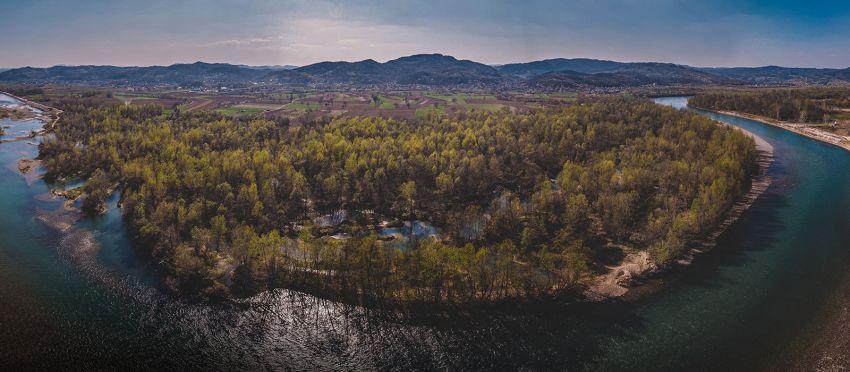
On the face of it, there seems to be little in the way of connection between the treatment of Novak Djokovic by Australian authorities and the cooling of the Serbian government towards Anglo-Australian mining company Rio Tinto. The mining giant was confident that it would, at least eventually, win out in gaining the permissions to commence work on its US$2.4 billion lithium-borates mine in the Jadar Valley.
Last year, Rio Tinto said the project would “scale up [the company’s] exposure to battery materials, and demonstrate the company’s commitment to investing capital in a disciplined manner to further strengthen its portfolio for the global energy transition.”
The road had been a bit bumpy, including a growing environmental movement determined to scuttle the project. But the ruling coalition, led by the Serbian Progressive Party, had resisted going wobbly on the issue.
Then came the maligning of the world number one tennis player in Australia. Djokovic had been tormented by a brief spell of confinement in quarters normally reserved for refugees kept in indefinite detention, and was eventually defeated in the Federal Court and deported. During the course of events, his visa was cancelled twice, first by a member of the Australian Border Force, the next time by immigration minister Alex Hawke. Lynch mobs were thrilled that “Novaxx” Djokovic, that great threat to Australia’s vaccinated innocence, was finally on a flight home.
The Serbian government attempted to intervene. President Aleksander Vučić made a plea to Scott Morrison’s government to resist cancelling Djokovic’s visa; the Australian Open was the Serbian tennis player’s favourite tournament, one he had won numerous times.
A diplomatic incident, more murmur than bark, was sparked. “In line with all standards of international public law, Serbia will fight for Novak Djokovic,” promised the Serbian president. But for an Australian government that has flouted international law and fetishised border control, the call mattered little.
In Serbia, Rio Tinto then faced a rude shock. The Vučić government, having praised the potential of the Jadar project for some years, abruptly abandoned it. “All decisions (connected to the lithium project) and all licenses have been annulled,” Serbian prime minister Ana Brnabić said flatly on January 20. “As far as project Jadar is concerned, this is an end.”
Brnabić insisted, somewhat disingenuously, that this decision merely acknowledged the will of voters. “We are listening to our people and it is our job to protect their interests even when we think differently.”
This is a bit rich coming from a government hostile to industry accountability and investment transparency. The same government also decided to begin infrastructure works on the jadarite mine before the granting of an exploitation permit. Such behaviour has left anti-mining advocates such as Savo Manojlović of the NGO Kreni-Promeni wondering why Rio Tinto was singled out over, for instance, Eurolithium, which was permitted to dig in the environs of Valjevo in western Serbia.
Zorana Mihajlović, Serbia’s mining and energy minister, preferred to blame the environmental movement, accusing them of injecting politics into environmental issues and having no concern for people’s livelihoods or industrial development.
Rio Tinto had been facing an impressive grass roots militia, mobilised to remind Serbians about the devastating implications of proposed lithium mining operations. The Ne damo Jadar (We won’t let anyone take Jadar) group has unerringly focused attention on the secret agreements reached between the mining company and Belgrade. Zlatko Kokanović, vice president of the group, is convinced that the mine would “threaten one of Serbia’s oldest and most important archaeological sites” and “endanger several protected bird species, pond terrapins, and fire salamander, which would otherwise be protected by [European Union] directives”.
Taking issue with Rio Tinto’s unflattering environmental record, numerous protests were organised and petitions launched, including one that has received 292,571 signatures. Last month, activists organised gatherings and marches across the country, including road blockades.
Djokovic has not been immune to the growing green movement, if only to lend a few words of support. In a December Instagram post featuring a picture of anti-mining protests, he declared: “Clean air, water and food are the keys to health. Without [them], every word about health is redundant.”
Rio Tinto’s response to its critics was that of a seductive guest keen to impress: Give us permission to dig, and we will make you the envy of Europe, green and environmentally sound ambassadors of the electric battery and car revolution.
The European Battery Alliance, a group of electric vehicle supply chain companies, is adamant that the Jadar project “constituted an important share of potential European domestic supply”. The mine would have “contributed to support the growth of a nascent industrial battery-related ecosystem in Serbia, contributing a substantial amount to Serbia’s annual GDP”. Assiduously selective, the group preferred to ignore the thorny environmental implications of the venture.
The options facing the mining giant vary, none of which would appeal to its board. The company claimed in a statement that it was “reviewing the legal basis of this decision and the implications for our activities and our people in Serbia”. It may seek to bully Belgrade with a legal suit, a move that is unlikely to improve its already worn reputation. “For a major mining company to sue a state is very unusual,” suggests Peter Leon of law firm Herbert Smith Freehills. “A claim under the bilateral treaty is always a last resort, but not a first resort.”
Another option for the company will be a political gamble: hoping that April’s parliamentary elections in Serbia will usher in a bevy of pro-mining representatives. By then, public antagonism against Australia will have dimmed. The Serbian ecological movement, however, is unlikely to ease their campaign. The age of mining impunity in the face of popular protest has come to an end.
[Dr Binoy Kampmark was a Commonwealth Scholar at SelwynCollege, Cambridge. He lectures at RMITUniversity, Melbourne. Email: [email protected]]